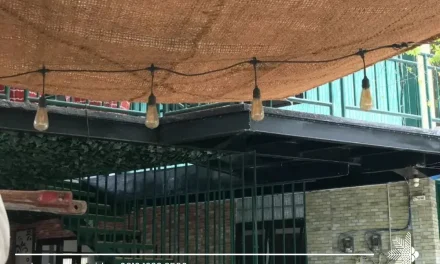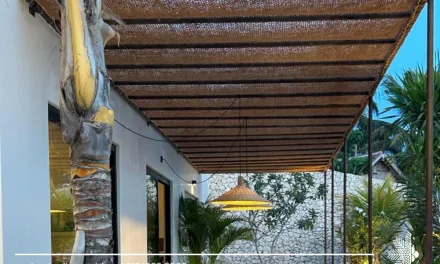Introduction to Canopy from Coconut Fiber
In an age where sustainability is becoming a global priority, eco-friendly building materials are increasingly in demand. One innovative product gaining popularity is the canopy from coconut fiber, a versatile and natural alternative for shade structures in various settings. Made from the coarse fibers extracted from coconut husks, this canopy combines functionality, durability, and environmental responsibility.

In the first paragraph, we’ve introduced the concept of canopy from coconut fiber as a practical and sustainable shading solution. It not only offers protection from the sun and rain but also supports green architecture by utilizing renewable and biodegradable resources.
What Makes Coconut Fiber Canopies Unique?
Coconut fiber, also known as coir, is well-regarded for its toughness and resistance to environmental degradation. When woven or layered properly, it can be transformed into a canopy that offers both aesthetic appeal and reliable performance.
1. Natural Durability
One of the most impressive qualities of a canopy from coconut fiber is its resilience. Coir is naturally resistant to saltwater, making it ideal for coastal applications. Additionally, it withstands harsh UV rays and fluctuating weather conditions, ensuring a longer lifespan than many synthetic materials.
2. Aesthetic Versatility
A canopy from coconut fiber brings a rustic, tropical look that suits various settings—from beach resorts and outdoor cafes to eco-lodges and private gardens. The earthy color and texture of coconut fiber blend well with both modern and traditional architectural designs.
3. Environmentally Friendly
Coir is a byproduct of the coconut industry, meaning it utilizes materials that would otherwise go to waste. By choosing coconut fiber canopies, users contribute to waste reduction, support sustainable agriculture, and reduce their carbon footprint.
Applications and Benefits in Outdoor Spaces
Coconut fiber canopies are increasingly being used in diverse outdoor environments. Whether for commercial, public, or residential use, they offer practical advantages:
1. Shade and Shelter
The primary function of a canopy from coconut fiber is to provide shade. It filters sunlight naturally without creating excessive darkness, offering a comfortable environment for relaxation or outdoor activities. It also protects from light rain and wind.
2. Cooling Effect
Unlike metal or plastic roofing, coconut fiber has natural insulation properties. It helps reduce heat buildup underneath the canopy, making it perfect for hot and humid climates.
3. Lightweight and Flexible Installation
Coconut fiber structures are relatively lightweight compared to traditional materials, making them easier to install. They can be woven into frames, hung from poles, or mounted on walls, allowing creative flexibility for designers and architects.
4. Biodegradability and Easy Disposal
At the end of its useful life, a canopy from coconut fiber can be composted or disposed of with minimal environmental impact. This contrasts sharply with synthetic materials that contribute to landfill waste.
Maintenance and Care Tips

To ensure maximum longevity and performance of your coconut fiber canopy, follow these basic maintenance tips:
- Regular Cleaning: Remove accumulated dust and organic debris using a soft brush or gentle water spray.
- Periodic Treatment: Applying a natural sealant can enhance water resistance and help prevent mold or mildew buildup.
- Check for Wear and Tear: Inspect the canopy regularly for signs of fraying or loosening, especially in high-wind areas. Timely repairs will extend the product’s life.
- Proper Storage: If the canopy is portable or seasonal, store it in a dry, cool place when not in use to avoid moisture damage.
Supporting Local Economies and Sustainability
Choosing a canopy from coconut fiber not only benefits the environment but also supports local coconut farming communities. The production of coir products creates employment opportunities in rural areas and promotes value-added processing of agricultural waste. Moreover, it encourages innovation in traditional craftsmanship by adapting old techniques to modern needs.
Consumers, architects, and developers who prioritize sustainability will find coconut fiber canopies to be an excellent choice. They align with green building certifications and eco-conscious design principles.
Conclusion
A canopy from coconut fiber offers a harmonious blend of sustainability, functionality, and aesthetic appeal. Its natural properties make it an ideal choice for eco-friendly shading, while its rustic charm adds character to outdoor spaces. With increasing awareness of environmental impacts, choosing coconut fiber canopies is a smart and responsible step toward a greener future.
For further information, you may contact WhatsApp at (+62) 812-1233-3590 or via email at sales@arlion.co.id.
Ask ChatGPT





